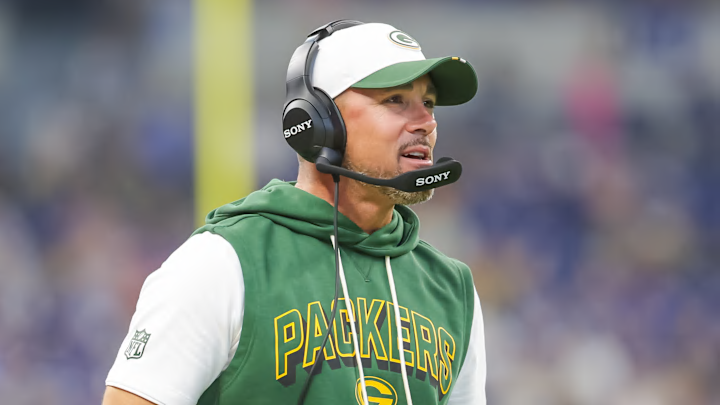“Well, of course!”
That’s all it took from Matt LaFleur, and the rest was history.
One shining example of the beauty of football is how complex the game is, but how simply it can be translated to its fans. Sure, that creates an environment where everyone thinks they have the right answer. After all, it only takes them one offseason to rebuild a franchise in Madden. What gives with these NFL front offices not making big-time moves to right the ship right away?
See good player, get good player is as simple as it needs to be, right?
As complicated as team building and roster management can be, sometimes it really is that simple. When Micah Parsons’ frustrations with Jerry Jones and the Dallas Cowboys boiled over into trade rumors, Green Bay Packers general manager Brian Gutekunst asked his head coach, Matt LaFleur, if he wanted a good player, and then got to work.
The simple question that sparked the Packers' biggest move in years
ESPN Packers reporter Rob Demovsky told Dan Patrick on his radio show Friday that around a week before the trade was announced, Gutekunst asked LaFleur if he wanted Micah Parsons, as if there were two possible answers. LaFleur responded with the only logical answer, “Well, of course!”
You know the rest of the story. Gutekunst sent Dallas two first-round picks and nose tackle Kenny Clark in exchange for Parsons, who was then given the largest non-QB contract in the NFL.
Overwhelmingly, opinions around the league back Gutekunst’s aggression in the trade and feel the Packers came out winners despite everything they had to give up to make the trade happen. Why, then, did teams like the Seattle Seahawks and others show no interest in pursuing a trade for Parsons if he could be had for what many feel to be a reasonable price?
READ MORE: Packers reporter floats nightmare Micah Parsons scenario that nobody asked for
You can lean back into the complexity of the NFL business for an answer: few teams have a team built to make a playoff run, affording them the opportunity to part with precious draft capital, and had the cap space to sign Parsons to a new deal. Thanks to Gutekunst’s team-building strategy over the years, he had the ammo to do what other teams couldn’t.
Of course, there’s also the simple answer: he tried to make it happen while other teams sat and watched. After all, nearly every player who asked for a trade this summer got a huge payday to stay put. Why expect Parsons to be any different?
Thankfully for the Packers, Gutekunst didn’t sit idly while an opportunity to upgrade one of his team’s biggest weaknesses was staring him in the face.
